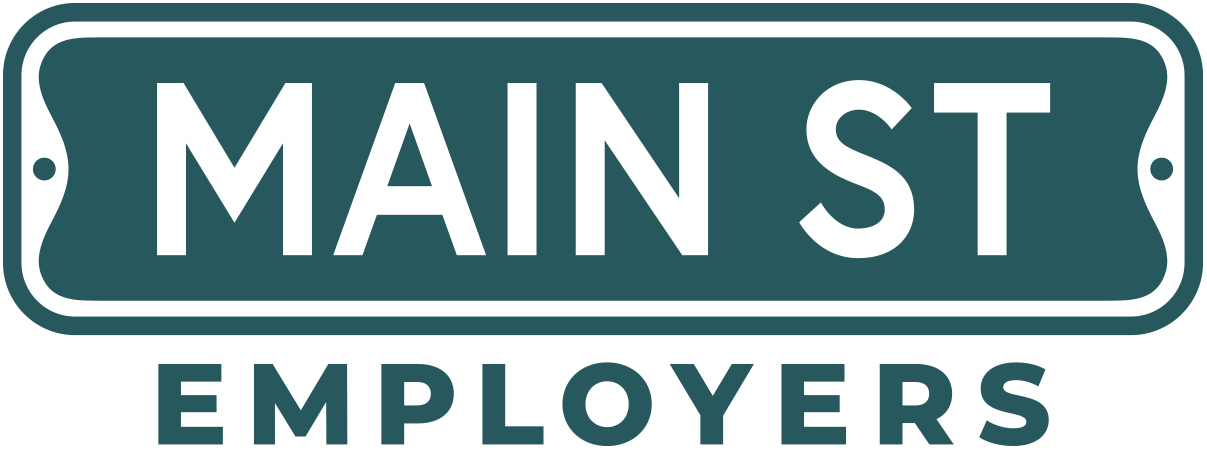The Main Street Employers Coalition joined with over 40 national organizations in support of H.R.…
Wall Street Poised for Win on Money-Laundering Bill in Lame-Duck
Wall Street is setting records even as millions of Main Street businesses struggle to stay alive, so what’s Congress doing? Sneaking legislation onto the Defense Authorization Act that makes life easier for big New York City banks by shifting their money laundering responsibilities onto Main Street businesses.
The legislation, authored by Caroline Maloney (D-NY) and Maxine Waters (D-CA), accomplishes this remarkable task in two simple steps: 1) relieve banks of some of their current anti-money laundering responsibilities; and 2) impose onerous new requirements on the struggling Main Street employers. As a result, the struggling restaurant down the street will need to start reporting the owner’s personal information to FinCEN, under penalty of jail time, but their bank, insurance company, accountant, and everybody else in the financial services community will be exempt.
Here are the key paragraphs from yesterday’s Bloomberg account. (Do they have an award for “Year’s Best Headline?”)
“Wall Street Poised for Win on Money-Laundering Bill in Lame-Duck”
Wall Street is on the verge of a long-sought lobbying win to relax anti-money laundering requirements, as Congress moves to wrap up its work for the year.
The measure, tucked into a must-pass Defense Department spending bill, could dramatically lighten lenders’ compliance burdens by creating a business-owner database to keep illicit cash out of the financial system and bar use of anonymous shell companies to launder money. Lawmakers released a final version of the legislation on Thursday, which still needs a vote in the House and Senate before it can be signed into law by President Donald Trump….
The money-laundering changes have long been a focus of banks, which are held responsible for reporting suspicious transactions and ensuring customers’ identities — duties considered vital in pursuing financial crimes. The industry has argued that the bill will modernize law enforcement’s ability to get useful information while also simplifying banks’ costly compliance demands….
The changes banks want won’t come without a cost — namely to small businesses’ compliance efforts. The Congressional Budget Office estimated that the bill would generate substantial expense by requiring as many as 30 million new filings a year to the Treasury Department’s Financial Crimes Enforcement Network, which would track companies’ ownership in a confidential registry. Negotiations over the legislation have since sought to make the new system more palatable to small businesses, according to people familiar with the talks.
“If it only applied to shell companies, we wouldn’t probably have as many objections,” said Kevin Kuhlman, who has lobbied for the National Federation of Independent Business against the bill, which requires firms with small numbers of employees to submit accurate ownership information.
Kuhlman said there is also concern among small businesses over the security of information that would be provided by companies for the new database. FinCEN, which would host the new registry, was caught up in a massive leak of banks’ secret disclosures that revealed trillions of dollars in suspicious bank transactions. News reports based on the documents fueled a new round of criticism that global financial firms have enabled large-scale money laundering under current rules.
You can read the full Bloomberg story here.
The broader business community has been fighting this ill-advised effort for years, but their backs are against the wall now. The House is expected to take up the Defense Authorization Act early next week.
But it’s not over either. President Trump has promised to veto the bill over several unrelated issues and its questionable whether the House or Senate have the votes to override the expected veto. Its safe to say the more Representatives and Senators read this Bloomberg piece, the fewer votes they’ll get. The congressional “Pro-Money Laundering, Anti-Main Street Caucus” is not very popular, after all.
